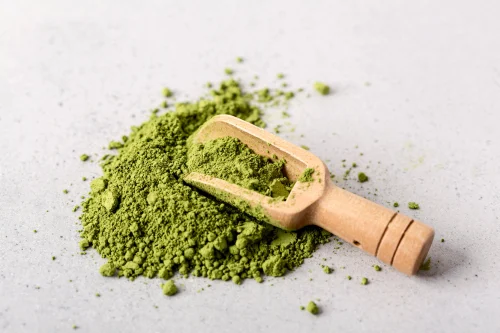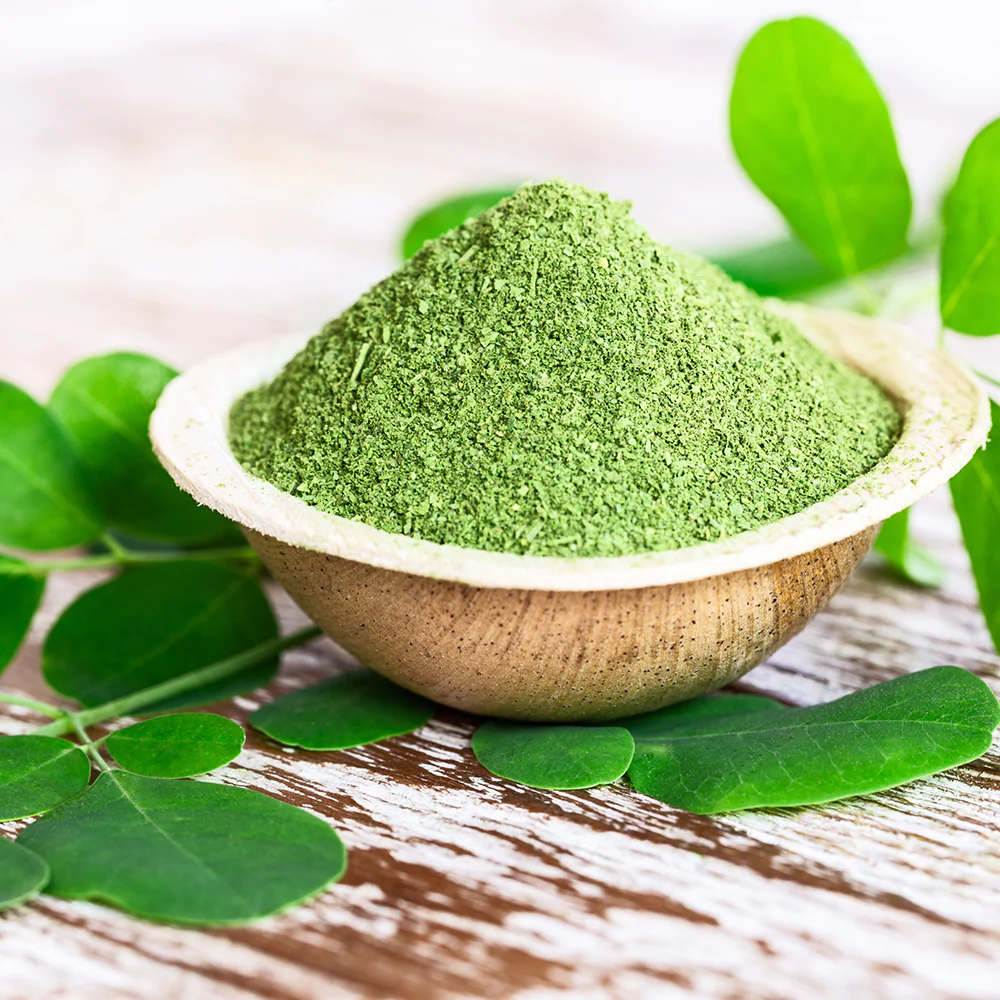Moringa, often hailed as the “miracle tree,” has gained widespread recognition for its incredible wellness benefits. Originating from the foothills of the Himalayas, this powerhouse of nutrients and healing properties has captured the attention of health enthusiasts worldwide.
Introduction to Moringa
What is Moringa?
Moringa is a plant that’s often referred to as the “miracle tree” due to its numerous nutritional and medicinal properties. It’s native to parts of Asia and Africa and is highly valued for its leaves, seeds, and pods, which are rich in vitamins, minerals, and antioxidants. The leaves, in particular, are known for their high nutrient content, including vitamin C, calcium, potassium, iron, and powerful antioxidants. Moringa has been used for centuries in traditional medicine for its potential to combat various health issues and boost overall wellness.
Nutritional Value of Moringa
The nutritional value of Moringa is remarkable. Its leaves, pods, and seeds are packed with essential nutrients, making it a sought-after superfood. Moringa contains a wealth of vitamins, including vitamin C, which supports the immune system, and vitamin A, crucial for eye health. It’s also rich in minerals like calcium, iron, and potassium, essential for bone health, blood function, and overall vitality. Moreover, Moringa is abundant in antioxidants, such as flavonoids and polyphenols, which help combat oxidative stress and promote overall well-being.
Table of Contents
Moringa’s Impact on Health
- Immune System Boost: Moringa contains compounds like vitamins, minerals, and antioxidants that actively support and fortify the immune system. These elements work synergistically to enhance the body’s ability to ward off infections and illnesses, contributing to overall health resilience.
- Inflammation Management: The anti-inflammatory compounds in Moringa, such as flavonoids and phenolic acids, have shown promising potential in reducing inflammation. This attribute may be beneficial for individuals dealing with inflammatory conditions like arthritis, providing relief and supporting better mobility.
- Disease Prevention Potential: With its high antioxidant content, Moringa exhibits a remarkable ability to combat oxidative stress. Oxidative stress is linked to various chronic diseases. Regular consumption of Moringa may aid in reducing this stress, potentially lowering the risk of diseases like cardiovascular issues, diabetes, and certain cancers.
Moringa’s holistic impact on health extends beyond these points, contributing to overall wellness and vitality due to its rich nutritional profile and bioactive compounds.
Moringa as a Superfood
- Nutritional Density: Moringa is packed with an impressive array of nutrients, including vitamins, minerals, and antioxidants. It contains essential vitamins like vitamin C, vitamin A, calcium, iron, and potassium, making it a powerhouse of nutrition in a small serving.
- Antioxidant Richness: The abundance of antioxidants in Moringa, such as quercetin and chlorogenic acid, contributes to its superfood status. These antioxidants help combat oxidative stress, supporting cellular health and overall well-being.
- Versatility in Consumption: Moringa can be consumed in various forms, such as fresh leaves, powdered supplements, teas, or incorporated into smoothies and dishes. Its adaptability makes it convenient for people to integrate into their diets, allowing easy access to its nutritional benefits.
The exceptional nutritional content combined with its adaptability in culinary uses positions Moringa as a top choice for individuals seeking a natural and nutrient-dense addition to their diet.
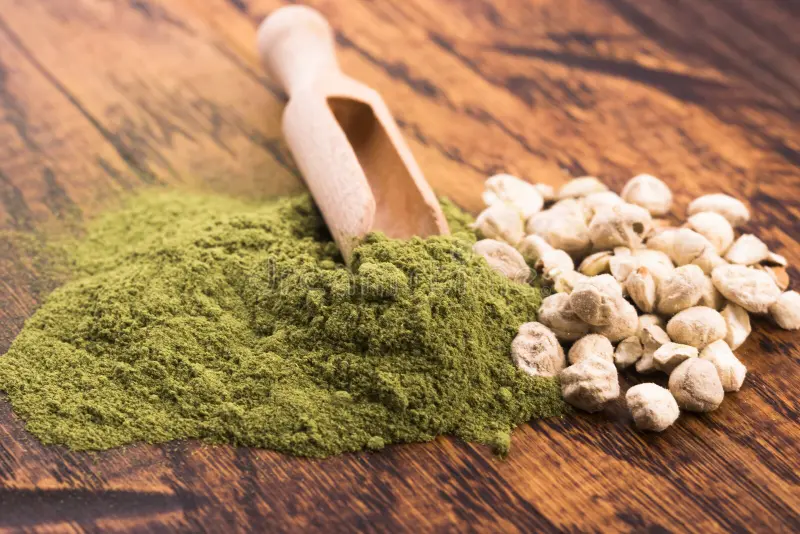
Cultivation and Sustainability
- Growth Conditions: Moringa thrives in diverse climates and soil types, making it adaptable to various geographical regions. It’s known for its resilience and ability to flourish in arid or harsh conditions, requiring minimal water for growth.
- Environmental Benefits: The rapid growth of Moringa coupled with its ability to thrive in challenging environments presents environmental advantages. Its deep roots aid in preventing soil erosion, making it an effective tool in soil conservation efforts. Additionally, Moringa’s cultivation requires fewer resources compared to many other crops, making it an eco-friendly choice.
- Sustainable Farming Practices: Cultivating Moringa often involves sustainable agricultural practices. Farmers can harvest its leaves multiple times a year, ensuring a continuous supply without depleting resources. Furthermore, its various parts – leaves, seeds, and pods – are utilized, minimizing waste and maximizing resource efficiency.
The cultivation of Moringa not only offers nutritional benefits but also demonstrates its potential in sustainable agriculture, contributing positively to environmental conservation and agricultural sustainability.
Moringa in Traditional Medicine
- Historical Significance: Throughout history, Moringa has been revered in traditional medicine systems in regions where it grows abundantly. It has been utilized for its diverse healing properties, with records of its use dating back centuries.
- Traditional Uses: In traditional medicine, Moringa was employed to address various health concerns. Its leaves, seeds, and roots were used to alleviate ailments ranging from digestive issues and skin conditions to promoting overall wellness and vitality.
- Modern Applications: Today, Moringa’s traditional uses align with modern holistic approaches to health and wellness. It continues to be studied for its potential in supporting immune function, managing inflammation, and aiding in various health conditions due to its rich nutritional content and bioactive compounds.
The historical use of Moringa in traditional medicine systems underscores its reputation as a plant with diverse therapeutic potential, contributing to its continued exploration and utilization in modern health practices.
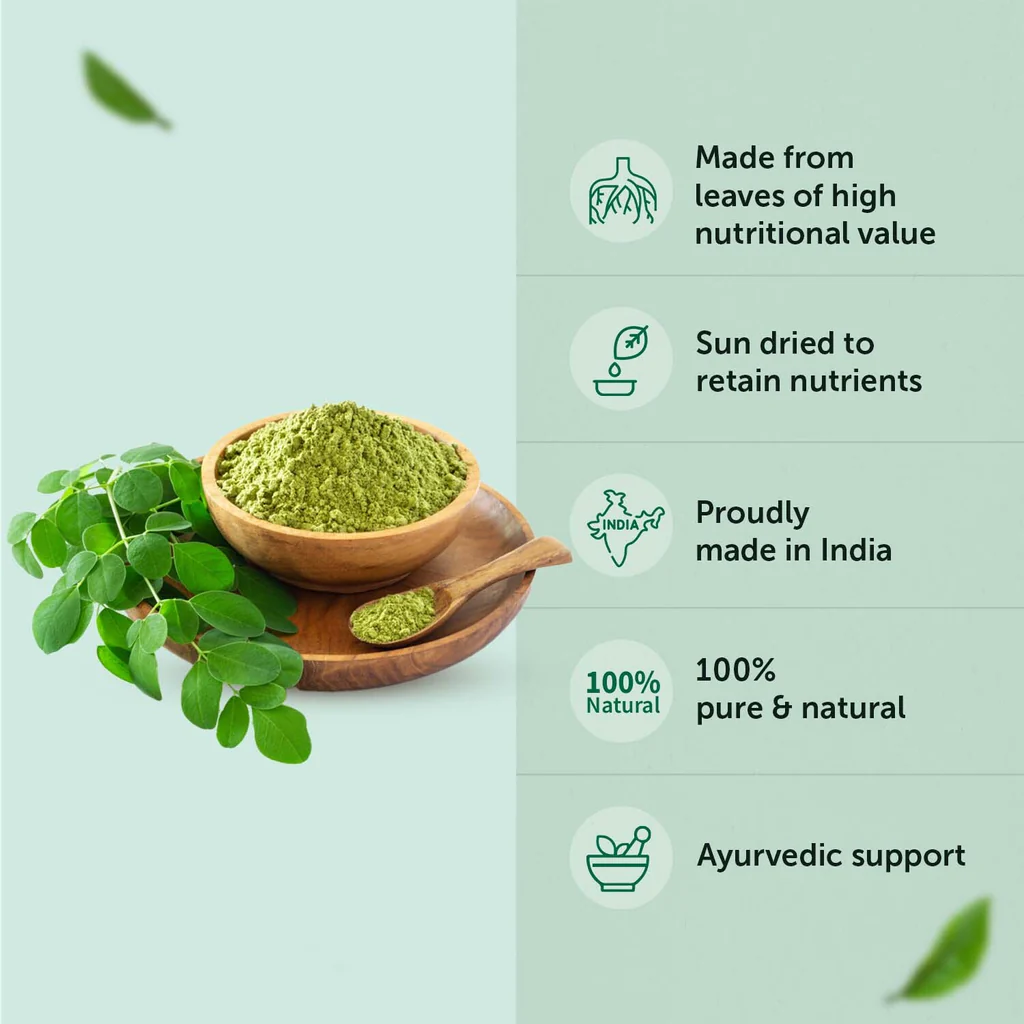
Moringa Products in the Market
- Supplements, Oils, and Extracts: Moringa is available in various forms, including capsules, powders, and extracts, providing convenient and concentrated doses of its nutrients. These supplements are sought after for their ease of use and potential health benefits.
- Consumer Trends and Preferences: The demand for natural, plant-based wellness solutions has fueled the popularity of Moringa products. Consumers are increasingly drawn to Moringa for its nutritional richness and potential health advantages, aligning with a growing preference for natural remedies.
- Diverse Applications: Beyond supplements, Moringa’s versatility extends to beauty and skincare products, where Moringa oil, extracted from its seeds, is valued for its moisturizing and antioxidant properties. Additionally, its leaves are utilized in teas, adding to the diversity of available Moringa-infused products.
The diverse range of Moringa products in the market reflects the growing recognition of its nutritional value and potential health benefits, catering to consumers seeking natural and holistic wellness solutions.
Scientific Studies and Research
- Notable Findings: Numerous scientific studies have highlighted various health-promoting properties of Moringa. These studies delve into its antioxidant, anti-inflammatory, and immune-boosting properties, shedding light on its potential role in combating diseases and supporting overall well-being.
- Ongoing Exploration: Research on Moringa continues, with scientists exploring its impact on specific health conditions like cardiovascular health, diabetes management, and skin health. Preliminary findings suggest promising avenues for utilizing Moringa in these areas.
- Clinical Trials: Some studies involve clinical trials to evaluate the efficacy and safety of Moringa-based interventions. These trials aim to provide evidence-based insights into the potential therapeutic applications of Moringa in addressing health issues.
The body of scientific research surrounding Moringa underscores its potential as a valuable natural resource for health and wellness, encouraging further exploration and investigation into its diverse health benefits.
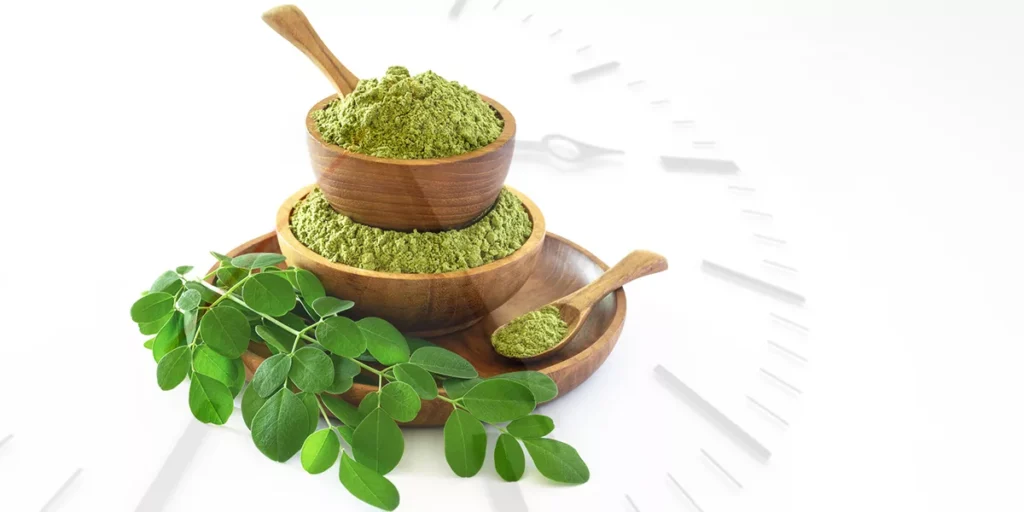
Challenges and Misconceptions
- Potential Side Effects or Limitations: While generally considered safe, excessive consumption of Moringa supplements or certain parts of the plant may lead to adverse effects like digestive issues. It’s crucial to adhere to recommended dosages and consult healthcare professionals, especially for individuals with specific health conditions or pregnant/nursing women.
- Common Myths Debunked: Misconceptions about Moringa’s miraculous abilities can lead to unrealistic expectations. It’s vital to understand that while it offers remarkable nutritional value, it’s not a cure-all solution for every health issue. Setting realistic expectations ensures a balanced approach to incorporating Moringa into one’s diet.
- Quality and Sourcing Concerns: The quality of Moringa products can vary significantly based on sourcing and processing methods. Ensuring high-quality, ethically sourced Moringa products is essential to reap its full benefits and avoid potential contaminants.
Addressing these challenges and misconceptions surrounding Moringa is crucial for fostering a better understanding of its use, ensuring safe consumption, and maximizing its potential health benefits.
Incorporating Moringa into Daily Routine
- Supplements and Powders: Moringa supplements or powders offer a convenient way to add this superfood to your routine. They can be easily mixed into smoothies, juices, or added to meals for an extra nutritional boost.
- Teas and Infusions: Moringa leaves make a flavorful and nutritious tea. Steeping dried Moringa leaves in hot water creates a refreshing beverage packed with antioxidants and nutrients.
- Cooking and Culinary Uses: Fresh or dried Moringa leaves can be used in various dishes, such as salads, soups, stir-fries, or incorporated into sauces. Its mild, slightly earthy flavor complements a wide range of recipes.
- Moringa Oil for Skincare: Moringa oil, extracted from the seeds, is valued for its moisturizing and antioxidant properties. Incorporating it into your skincare routine can nourish and protect your skin.
- Mindful Consumption: Pay attention to recommended dosages and be mindful of your body’s response when incorporating Moringa into your routine. Consulting a healthcare professional for guidance, especially if pregnant, nursing, or managing specific health conditions, is advisable.
By exploring these simple yet diverse ways to integrate Moringa into your daily life, you can harness its nutritional benefits and contribute to a healthier lifestyle.
Recipes and Culinary Inspiration
- Moringa Smoothie:
- Blend fresh spinach, banana, pineapple chunks, a spoonful of Moringa powder, and coconut water for a refreshing and nutrient-packed smoothie.
- Moringa Pesto:
- Combine fresh basil, garlic, pine nuts, Parmesan cheese, olive oil, and a handful of Moringa leaves in a food processor for a vibrant and flavorful Moringa pesto. Serve with pasta or as a dip.
- Moringa Stir-Fry:
- Sauté diced tofu or chicken with bell peppers, broccoli, and sliced carrots. Add a sprinkle of Moringa powder towards the end of cooking for a nutritious boost.
- Moringa Tea Infusion:
- Steep dried Moringa leaves in hot water for a soothing and healthful tea. Add a touch of honey or lemon for extra flavor.
- Moringa Energy Balls:
- Mix dates, nuts, shredded coconut, and a tablespoon of Moringa powder in a food processor. Roll the mixture into bite-sized balls for a nutritious snack.
- Moringa Salad:
- Toss fresh mixed greens, cherry tomatoes, cucumber slices, and avocado chunks with a dressing made of olive oil, lemon juice, and a pinch of Moringa powder for a nutrient-packed salad.
Experimenting with these recipes showcases the versatility of Moringa in various culinary creations, allowing you to enjoy its nutritional benefits in delicious and innovative ways!
Global Influence and Accessibility
- Availability Worldwide: Moringa’s popularity has transcended borders, and it’s now cultivated and available in various parts of the world. Its adaptability to diverse climates has facilitated its growth and accessibility on a global scale.
- Social and Economic Impact: The cultivation of Moringa contributes significantly to local economies in regions where it’s grown. Its cultivation creates employment opportunities and supports sustainable agricultural practices, positively impacting communities.
- Health and Nutrition Outreach: Moringa’s rich nutritional profile has made it a valuable resource, especially in areas where access to diverse and nutrient-dense foods is limited. Its availability contributes to addressing nutritional deficiencies in some regions.
- Consumer Adoption: Consumers worldwide are increasingly drawn to Moringa for its perceived health benefits and nutritional value. Its availability in various forms, from supplements to culinary ingredients, caters to the diverse preferences of consumers seeking natural wellness solutions.
The global reach and accessibility of Moringa underscore its versatility, nutritional significance, and positive impact on both local economies and global health initiatives.
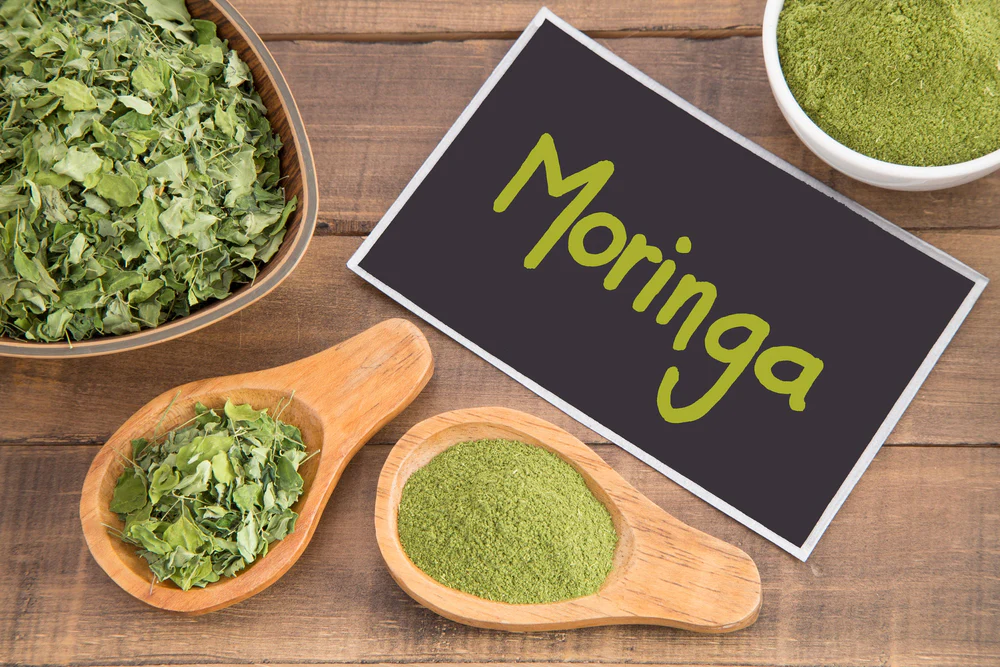
Testimonials and User Experiences
- Increased Energy Levels: Many users report feeling more energized and less fatigued after incorporating Moringa into their daily routines. Its rich nutrient content, especially iron and vitamin C, contributes to a sustained energy boost.
- Improved Digestion: Some individuals share experiences of better digestion and relief from digestive issues, attributing it to the presence of compounds in Moringa that aid in digestive health.
- Enhanced Skin Health: Users often note improvements in their skin condition, mentioning a clearer complexion and reduced skin issues after using Moringa-based skincare products or consuming it regularly.
- General Well-being: Testimonials also highlight a sense of overall well-being and vitality, with users attributing their improved health markers to regular consumption of Moringa.
These user experiences and testimonials reflect the diverse ways individuals have benefited from incorporating Moringa into their lifestyles, showcasing its potential positive impact on various aspects of health and wellness.
Expert Opinions and Recommendations
- Nutritional Expertise: Nutritionists and dietitians often highlight Moringa’s exceptional nutritional profile, recommending it as a valuable addition to a balanced diet. They emphasize its richness in vitamins, minerals, and antioxidants, advocating for its inclusion for overall health support.
- Healthcare Professionals: Healthcare professionals, including doctors and herbalists, acknowledge the potential therapeutic properties of Moringa. While advocating for its use, they advise consulting with healthcare providers for personalized guidance, especially for individuals managing specific health conditions or on medication.
- Usage Advice: Experts recommend starting with small doses of Moringa and gradually increasing intake to assess individual tolerance. They also stress the importance of obtaining high-quality, reputable products and being mindful of sourcing and processing methods.
- Incorporating Mindfully: Experts encourage incorporating Moringa as part of a diverse and balanced diet, complementing it with other nutrient-rich foods. They stress the importance of moderation and variety in consumption for optimal health benefits.
Expert opinions and recommendations serve as valuable guidance for individuals considering integrating Moringa into their lifestyles, offering insights on its potential benefits and advising on mindful and informed usage.
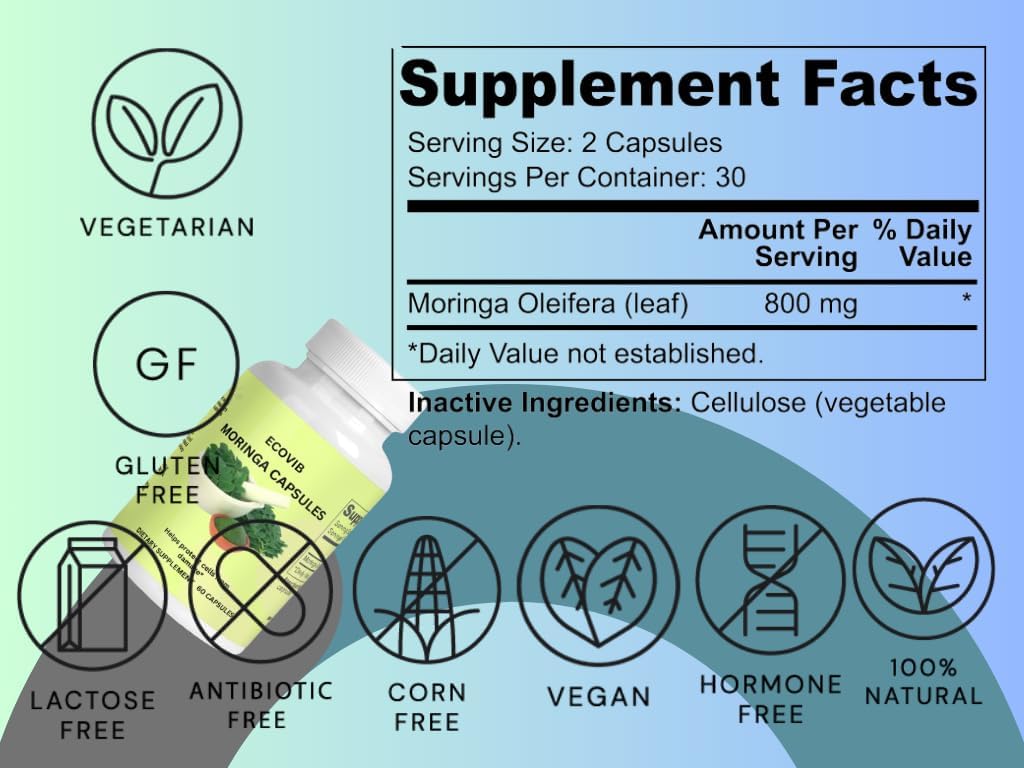
Source to Get Organic Moringa Leaf Powder Capsules
Conclusion
In unlocking Moringa’s wellness secrets, it becomes evident that this ‘miracle tree’ holds significant promise in enhancing health and well-being. Its nutritional richness, versatility, and potential in holistic health practices make it a valuable addition to wellness routines.
Unique FAQs
- Is Moringa safe for daily consumption?
- How does Moringa compare to other superfoods like kale or spirulina?
- Can pregnant women or nursing mothers consume Moringa supplements?
- Are there any known side effects of excessive Moringa consumption?
- What are the best ways to incorporate Moringa into a vegetarian or vegan diet?
